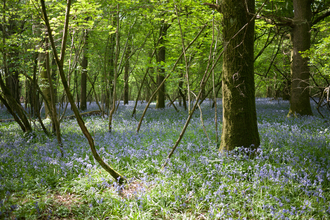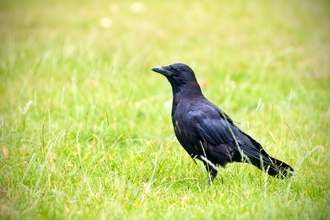©Gillian Day
Jackdaw
Scientific name: Corvus monedula
The jackdaw is a small, black-capped crow of woodlands, parks, towns and coast. It is a well-known thief, stealing other birds' eggs and breaking into garden feeders.
Species information
Category
Statistics
Length: 33-34cmWingspan: 70cm
Weight: 220g
Average lifespan: 5 years
Conservation status
Common. Classified in the UK as Green under the Birds of Conservation Concern 5: the Red List for Birds (2021). Protected in the UK under the Wildlife and Countryside Act, 1981.
When to see
January to DecemberAbout
Our smallest crow, the jackdaw is a bird of woodland, parkland, coasts and urban areas. It nests in holes in trees, and on cliffs and buildings; sometimes it will even nest in chimneys! It eats invertebrates, fruit, seeds and carrion, and occasionally takes eggs and nestlings. A sociable bird, the jackdaw can be seen in flocks, often performing aerial acrobatics or repeating its short, loud 'kya' call. Jackdaws mate for life, pairing-up during their first year, but not mating until the year after. The pair will often sit next to each other, preening.How to identify
The jackdaw has a short, chunky bill, a grey 'shawl' around the back of the head, a black cap and a white eye.Distribution
Widespread, but absent from the far north-west of Scotland.Did you know?
The common name of the jackdaw probably comes from two separate words: 'jack' meaning rogue (it is a well-known thief) and 'daw', which is an imitation of its call.Watch
Jackdaws (https://vimeo.com/447449628)
Jackdaws by John Bridges



